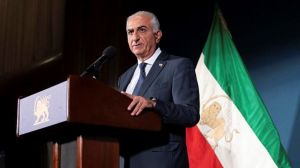Textbook terrorism
Curiously, the most significant sentence in General Pervez Musharraf8217;s speech in Almaty last week has gone almost unnoticed. In his fir...

Curiously, the most significant sentence in General Pervez Musharraf8217;s speech in Almaty last week has gone almost unnoticed.
In his first open endorsement of terrorism since 9/11, he said, 8216;8216;We must ask ourselves whether the present situation has been brought about because of a sudden eruption of violence and terrorism by misguided individuals and desperate groups that threaten to destabilise the international community. Or is there a deeper malaise and terrorism is a symptom of this malaise8217;8217;.
The General is a military man and not a politician, so he is probably unaware that there always is a 8216;8216;deeper malaise8217;8217; when politics turns to violence.
The problem is that in countries that like to think of themselves as civilised, it is considered wrong to approve of terrorism whether it is born out of a deep malaise or a shallow one.
When Donald Rumsfeld visits the subcontinent next week the most useful thing he can do is to take this up with the General and explain to him that Osama bin Laden also acted out of what he saw as a 8216;8216;deeper malaise8217;8217;.
Does that justify the suicide bombing of the World Trade Center and the Pentagon? The American defence secretary would also be doing us all an enormous favour if he asked Musharraf to take him on a small tour of Pakistani madrassas.
He might discover the breeding ground for both Islamic fundamentalism and terrorists. The most famous products of these schools were the Taliban and it is important to remember that taliban in Urdu means students but the terrorists who come into India to kill women and children also receive their early training in these schools. Not through weapons training but by creating such a deep sense of malaise among young Pakistanis that they grow up obsessed with a hatred of India and Hindus. They also grow up obsessed with the idea that Kashmir has to be returned to Pakistan and that the only way to get it back is through jihad.
It is this Islamic education that has transformed Pakistan from a country not very different to India not so very long ago to another more dangerous kind of country altogether.
When I first visited Pakistan 20 years ago, it was so much like India that it was unnerving. The only real difference then being that everyone you met was Muslim and instead of democracy they were ruled by a military dictator with a deep commitment to Islamise Pakistan.
That he had more than succeeded I discovered on my most recent trip to Pakistan last summer. I was doing street interviews for a TV programme in the bazaars of Lahore and Karachi, and whether it was unemployed workers, veiled women or educated young men, everyone I talked to said they were prepared to die fighting for Kashmir.
Even more worrying was their hatred for Hindus and India. One young man in Lahore showed me an Urdu newspaper which he said had a story on Indian children being recruited to fight in Kashmir.
When he showed me the newspaper I pointed out that the uniforms the 8216;8216;Indian soldiers8217;8217; were wearing in the picture were not Indian army or police uniforms.
Nobody in that crowd of about a hundred young men believed me and had I carried on the discussion much longer, I may not have lived to tell the tale.
Incidentally, the venom the young men spewed against India was so explosive we had to exclude many of the interviews from the programme.
What Islam has done to Pakistan is transform it into Gujarat on a larger scale and without any Hindus left to kill.
I mention Gujarat deliberately because I want to make the point that we have our share of politicians and religious groups who believe in mixing religion with politics. Narendra Modi would feel completely at home in Pakistan as would his fellow travellers like Ashok Singhal and Praveen Togadia.
The difference is that in India they continue to represent a minority view and 8212; dangerous though it always is to make political predictions 8212; this will become evident when the Bharatiya Janata Party finds itself thrown out of power after the next general election.
In Pakistan it is the liberals and moderates who are so much in the minority as to have become almost irrelevant.
So, when our government asks General Musharraf to dismantle the 8216;8216;infrastructure of terrorism8217;8217; it does not fully understand what it asks. Indian hackles rise when the General repeats in all his speeches that Kashmir runs in the blood of every Pakistani, but we do not realise that if he ever dares stop the Kashmir jihad he will no longer be able to rule Pakistan.
Having said that, though, he must understand that he cannot continue to speak openly in support of terrorism in the forums of the world because every time he does, he signals to jihadi groups in his country that he is still with them.
And, that although the battlefield of Afghanistan is now temporarily closed for action, Kashmir is still open. If America wants its global war against terrorism to be taken seriously it must get its ally to stop his search for the 8216;8216;deeper malaise8217;8217; and get him to first deal with its symptom: terrorism.
- 01
- 02
- 03
- 04
- 05































